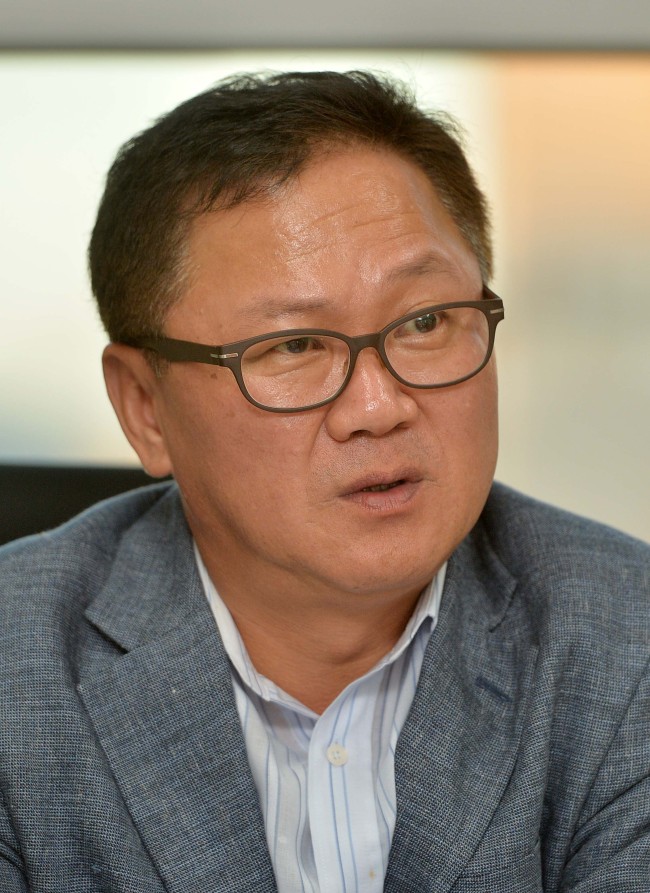‘Seoul should use alliance to boost diplomatic clout’
Diplomacy expert says Seoul’s reliance on U.S. alliance has left its diplomacy weak
By Korea HeraldPublished : Sept. 23, 2013 - 21:31
This is the fifth in a series of articles to mark the 60th anniversary of the South Korea-U.S. alliance. ― Ed.
South Korea’s dependence on its alliance with the U.S. for security and diplomacy has been credited with helping the once-war-ravaged country rapidly emerge as one of Asia’s economic powerhouses.
But the fruits of the six-decade-old partnership did not come without cost, according to Kim Tae-hyun, the director of the Center for the Study of Grand Strategy at Chung-Ang University.
“From a broader perspective, the evaluations of the partnership are largely positive as it has buttressed peninsular stability and helped Seoul’s foreign policy. But there were costs it had to pay,” Kim told The Korea Herald.
South Korea’s dependence on its alliance with the U.S. for security and diplomacy has been credited with helping the once-war-ravaged country rapidly emerge as one of Asia’s economic powerhouses.
But the fruits of the six-decade-old partnership did not come without cost, according to Kim Tae-hyun, the director of the Center for the Study of Grand Strategy at Chung-Ang University.
“From a broader perspective, the evaluations of the partnership are largely positive as it has buttressed peninsular stability and helped Seoul’s foreign policy. But there were costs it had to pay,” Kim told The Korea Herald.

“With Washington backing Seoul on the global stage, its diplomatic finesse has remained weak. Also without wartime operational control, Seoul has failed to nurture sufficient abilities to independently plan, organize and conduct military operations.”
Pointing to an increasingly multilateral world order being shaped by the rise of China and other emerging powers, Kim called on Seoul to explore ways to bolster its genuine diplomatic clout so that it would remain steadfast even without U.S. support.
“So far, Seoul has had little trouble as long as it followed Washington’s stance on multilateral issues, because it largely became the mainstream position and was often aligned with its national interests,” he said.
“But things could change in an increasingly diverse, multilateral world, forcing each country to weigh different options that would best serve their interests. This requires a high level of diplomacy and strategy.”
As for the most crucial factor to the success of the bilateral partnership, Kim mentioned the shared perception of threats from North Korea, saying the alliance faltered when the allies differed in their threat recognition.
“The South was in a life-or-death competition with the North during the Cold War while the U.S. viewed the North as being at the vanguard of the communist forces led by the Soviet Union,” he said.
“Thus, the allies had a shared threat perception, and their partnership has continued over the long haul through thick and thin.”
Touching on Seoul’s enhanced national power and increased contributions to the international community, Kim noted the role of the alliance had also expanded to embrace broader tasks to tackle regional and global challenges.
In light of this, the professor said the two countries need to build a new modus operandi for a more balanced partnership.
“Those in the U.S. who believe South Korea is still a weak, junior partner should change their thinking. Those in Korea who think Seoul can’t do anything with the U.S. should also dismiss that idea,” he said.
“Of course, a more balanced alliance requires Seoul to take more responsibilities such as sending more peacekeeping troops overseas. Otherwise, cracks could emerge in the alliance.”
Speaking of America’s refocus on the Asia-Pacific region, which is emerging as a fulcrum of global power and wealth, Kim said the geostrategic value of South Korea for the U.S.’ global strategy would increase.
“If the U.S. does not have a footprint on the peninsula, it means it would lose the bridgehead into the Eurasian continent ― a treasure trove of wealth. Without connections, the U.S. Navy would have difficulty entering the West Sea close to China,” he said.
“Also, in terms of institutional inertia, the U.S. would hardly abandon the alliance, which has been cemented over the last six decades for mutual interests. Without its presence, the post-reunification peninsula could also fall under the sphere of Chinese influence ― a bad scenario for Washington.”
As for the future of the alliance, Kim expressed hopes that the partnership would serve as a “building block” in regional efforts toward establishing a collective security mechanism like the North Atlantic Treaty Organization in Europe.
“In East Asia, there are mostly bilateral alliances such as the Korea-U.S. alliance and the U.S.-Japan alliance. We can move toward collective security by connecting those separate alliances, involving confidence-building institutions such as the ASEAN Regional Forum and promoting compatibility among them,” he said.
“For the shared regional goal, the Seoul government can work up its diplomacy as it has been working on its own initiative to entrench peace and stability in Northeast Asia.”
Regarding the possibility that the intensified Sino-U.S. confrontation could impact the Korea-U.S. alliance, Kim dismissed it as “one-dimensional.”
“The world is far more complex with growing economic interdependence, international rules and all. The U.S. and China are not running toward each other on a one-dimensional line only to clash,” he said.
For the future evolvement of the alliance, Kim stressed Seoul should stay vigilant to make sure that the partnership is on the right track.
“As the alliance evolves, heads could bang here and there and sometimes it could get off course,” he said. “What matters here is that we ensure the alliance moves ahead to secure peninsular peace and regional stability, and enhance its diplomatic stature.”
By Song Sang-ho (sshluck@heraldcorp.com)
-
Articles by Korea Herald










![[Hello India] Hyundai Motor vows to boost 'clean mobility' in India](http://res.heraldm.com/phpwas/restmb_idxmake.php?idx=644&simg=/content/image/2024/04/25/20240425050672_0.jpg&u=)









